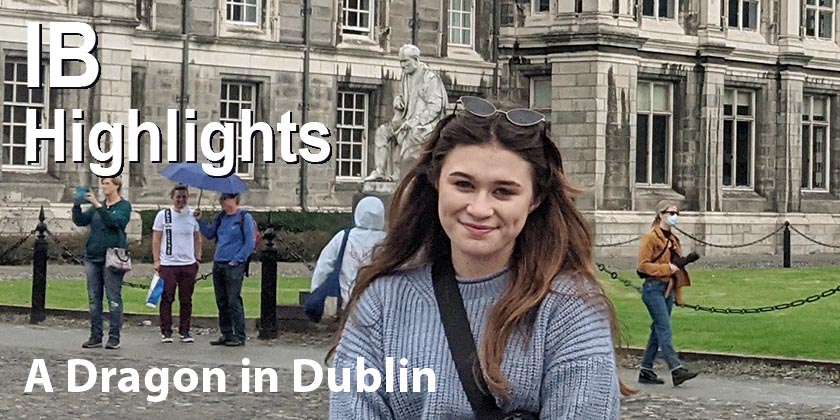
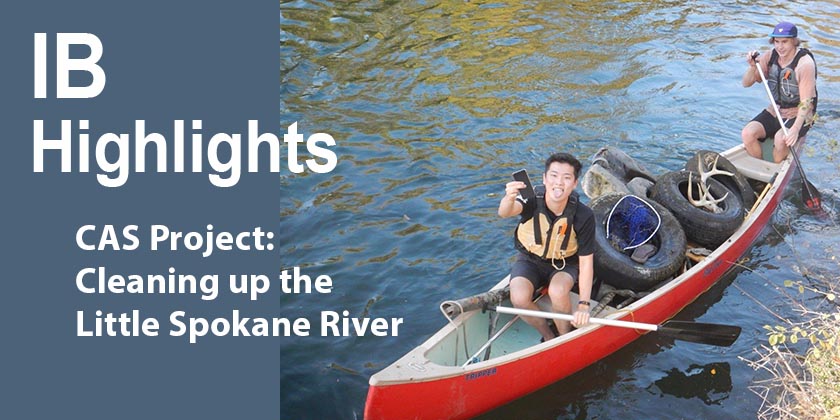
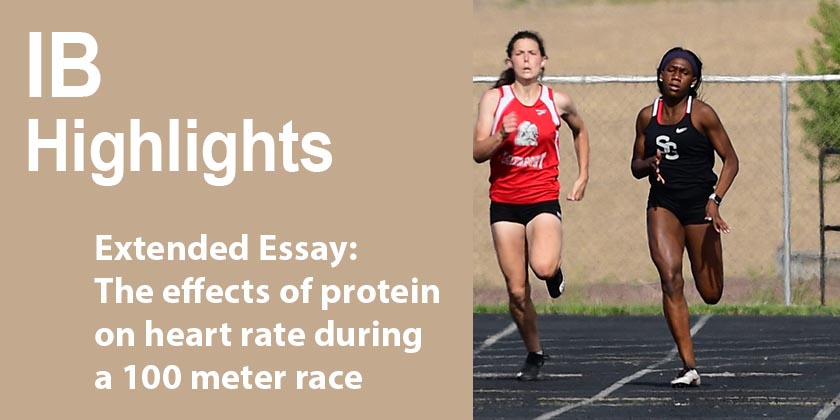
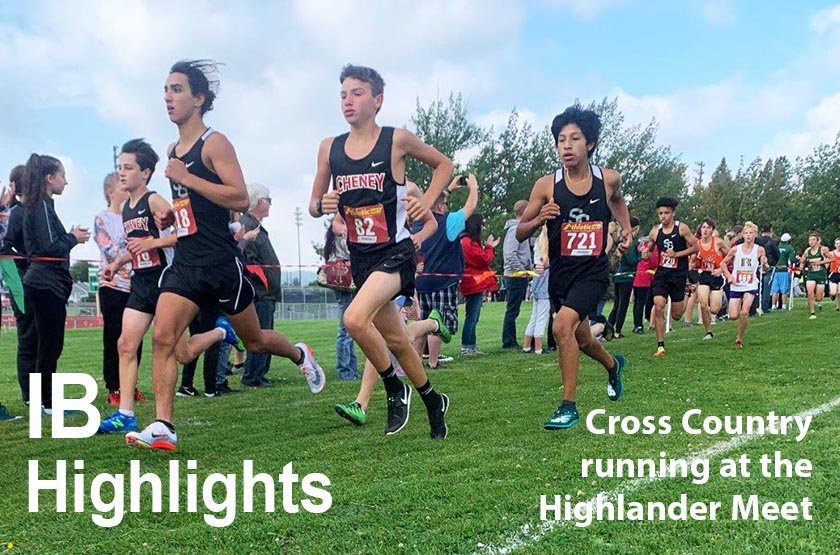
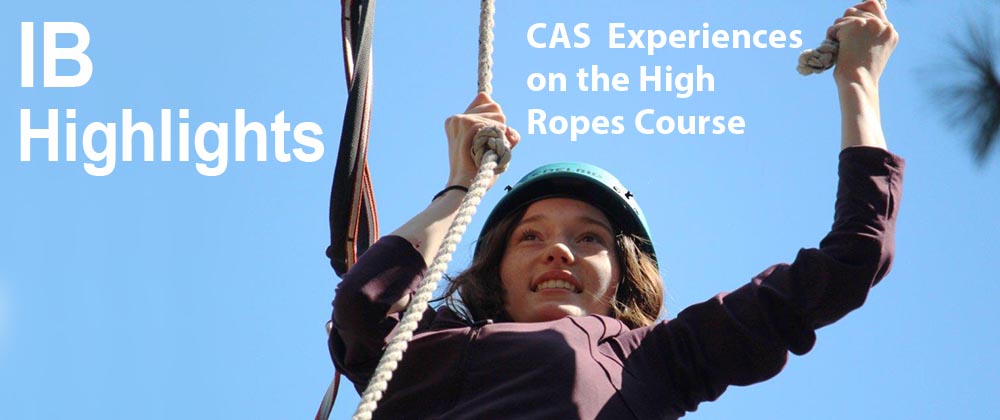
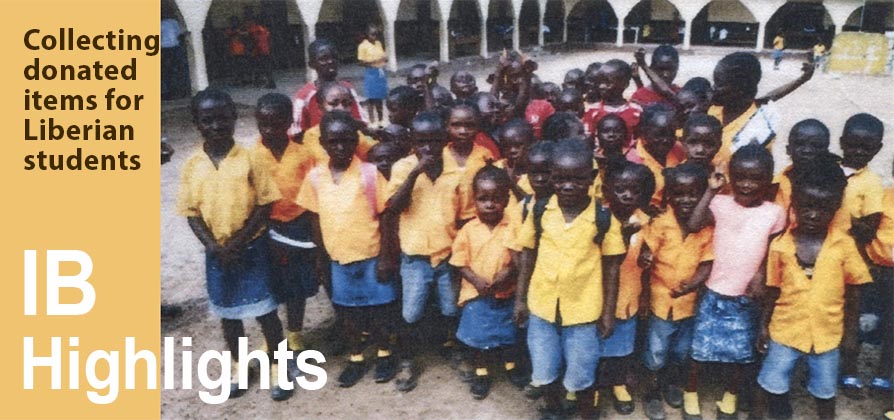
CAS Project: Our full IB diploma students complete CAS (Creativity, Action, Service) projects that are part of an 18-month portfolio, including reflections on their experiences. Junior Chase Foster’s CAS Project is to collect donated items for students in the West African nation of Liberia. The items – warm weather clothing, new and used shoes, sports equipment, children’s book, and school supplies – will be sent to Liberia through the Lutheran Church this summer and distributed by Chase’s grandparents when they arrive in November to build schools in that country. See Chase’s Liberia Donation Flyer for more details on the items he’s collecting, which can be dropped off in the green bucket by the Upper School courtyard stairs through Friday, May 21.
CAS Experience Highlights: CAS experiences for all of our Upper School students (in the US and in China) include helping sick animals, making meals for grandparents, working in the yard, running, walking, and playing basketball.
CORE Update: The juniors are working on Extended Essay outlines and getting ready to do some writing of their EE before the end of the year. In Theory of Knowledge, the students are exploring theme of knowledge and politics to continue their quest for TOK in the real world around us. They are also preparing for their final exhibitions, which they will share with sophomores on May 20.
IB Question of the Week: Who is the new Director General of the IB? Olli-Pekka-Heinonen was just named the 8th Director General. You can see a video here: https://vimeo.com/543632524/10d9a0d5f3
IB Overview: The Diploma Programme (DP) curriculum for grades 11-12 is made up of six subject groups and the DP core, comprising Theory of Knowledge (TOK), Creativity, Activity, Service (CAS) and the Extended Essay (EE). Please refer to our IB webpage and to the IB Resources page in PowerSchool Learning for detailed IB information.
.jpg)
Upper School students complete Creativity, Activity and Service (CAS) projects and reflect on them. This week there were a variety of CAS projects that students engaged in.
CAS Experience Highlights: CAS experiences for all of our Upper School students (in the US and in China) include helping with the Joya penny drive posters, snorkeling, playing tennis, doing a photo overnight, participating in the Day of Silence, tutoring, making Day of Silence ribbons, volunteering at the Better Living Center, Helping with Casino Night, helping plant the storm garden, going surfing, making blankets, going skiing, house sitting, and team training activities.
IB Overview: The Diploma Programme (DP) curriculum for grades 11-12 is made up of six subject groups and the DP core, comprising Theory of Knowledge (TOK), Creativity, Activity, Service (CAS) and the Extended Essay (EE). Please refer to our IB webpage and to the IB Resources page in PowerSchool Learning for detailed IB information.
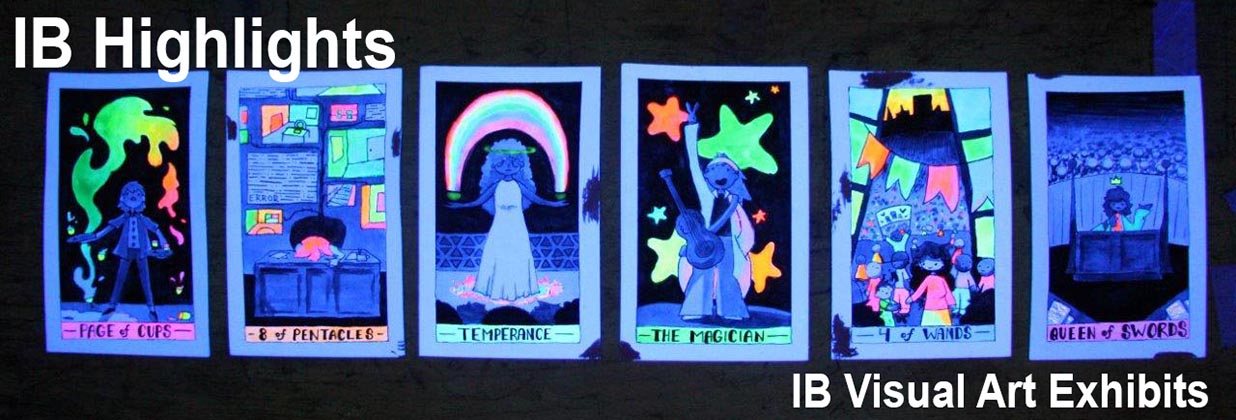
Three senior International Baccalaureate Diploma Candidates have their work on display in the Upper School in April. See photo galleries of Josie Melville's Exhibit that's in the Art Gallery, Dana Mogensen's Exhibit that is in the space in front of Founders Theater, and Sydney Bledsoe's Exhibit in the Photography Room and Dark Room just to the right of the Art Gallery. Here's what each senior had to say about their artwork...
Sydney: "This body of work explores themes of the esoteric and paranormal. I’ve always been interested in the supernatural, not because I see it as a method of explaining the inherent strangeness of the world but rather because I enjoy the stories, questions, and ideas that come along with attempting to research things beyond our world. The paranormal themes explored in these pieces come from a wide array of folklore, conspiracy theories, and magical practices. In addition, the works as a whole were inspired by the fantastical illustrations of Aubrey Beardsley as well as more contemporary media, such as Western cartoons and comics."
Josie: “This exhibition explores the connection between humanity and the natural world, or what is perceived to be natural. Throughout my life I have seen and built a connection to what is natural. I have also observed how other people do not see themselves connected to nature and do not perceive themselves as natural beings. The natural and human themes explored in these pieces are used as commentary and expression, I built my exhibition to show others how I perceive myself and the world around us.”
Dana: "I live on a hillside that overlooks a valley and across are layers of hills and mountains. It is just a few miles from our city that has a river (sometimes raging) that runs through it creating a juxtaposition between nature and manmade structures. I have always been drawn to these environments that surround me —landscapes, mountains, and cityscapes. These influences led to inspire a range of pieces for my exhibition. I also wanted to present my personal abilities to work with a multitude of medias. It was the range of medias that motivated me to include them in my exhibition. I also explored a sense of connection to the world that both natural and manmade views make, without the presence of people. It allows the viewers to enjoy the piece in their own eyes and in their own time."
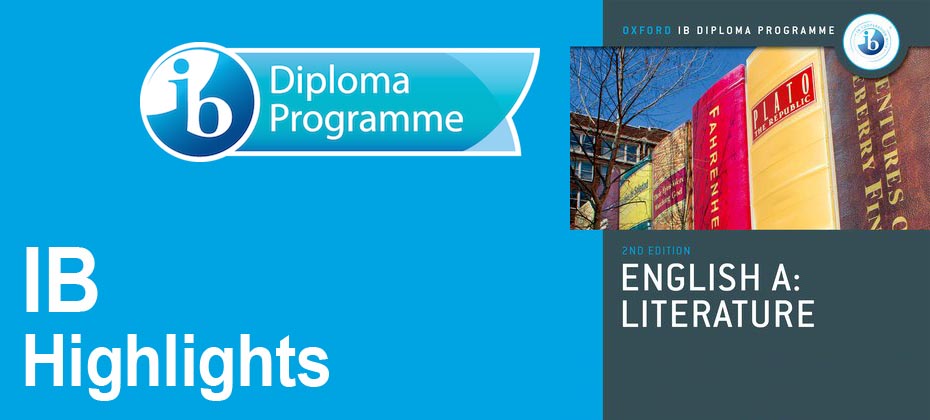

CAS Experience Highlights: CAS experiences for all of our Upper School students (in the US and in China) include helping with the All-School Talent Show, volunteering at a local food bank, taking a dog on a jog, taking pictures, donating blood, walking dogs, making cookies, bowling, participating in cross country, participating in FTC Robotics, hiking, participating in the trans day of visibility, making rings, replanting flowers, attending a hand gun shooting class, volunteering at a café, caring for stray dogs at a shelter, teaching younger kids piano, and hiking at Palouse Falls.
IB Question of the Week: What are other countries doing about administering IB exams this year?
In the United States, whether a school is on the exam or non-exam route for May 2021 exams is determined individually, since each school can have a different status. SGS is on the non-exam route. These countries also are on the non-exam route like SGS: Panama, Indonesia, Poland, Lebanon, India, Turkey, United Kingdom, France, Mexico, Iraq, Canada, Colombia, Pakistan and Ecuador. These countries are giving exams: Egypt, Norway, Spain, Brazil, Kenya, Tanzania, Greece, Switzerland, Zambia, Jordan, Bulgaria, Argentina, Thailand, Singapore, South Korea, Ukraine, Iceland, Australia, Costa Rica, Sweden, China and Romania.
IB Visual Arts Highlight:
In IB Visual Art, students are assessed in three ways:
1. A comparative study in which students analyze and compare different artworks by different artists. This independent critical and contextual investigation explores artworks, objects and artifacts from differing cultural contexts;
2. A process portfolio in which students submit carefully selected materials which evidence their experimentation, exploration, manipulation and refinement of a variety of visual arts activities during the two year course;
3. And an exhibition in which the selected pieces should show evidence of their technical accomplishment during the visual arts course and an understanding of the use of materials, ideas and practices appropriate to visual communication.
Three IB Visual Art seniors, Sydney Bledsoe, Dana Mogensen and Josie Melville, have their exhibitions completed and on display in the Upper School. See the article on the IB Art Exhibits for details about each student's artwork and links to see their exhibits.
IB Overview: The Diploma Programme (DP) curriculum for grades 11-12 is made up of six subject groups and the DP core, comprising Theory of Knowledge (TOK), Creativity, Activity, Service (CAS) and the Extended Essay (EE). Please refer to our IB webpage and to the IB Resources page in PowerSchool Learning for detailed IB information.
Latest News | Page 2 | Page 3 | Page 4 | Page 5 | Page 6